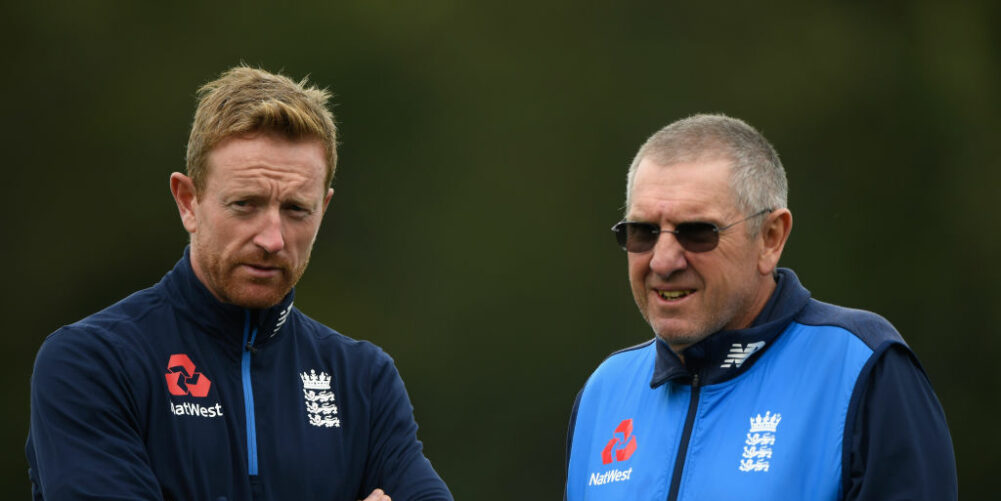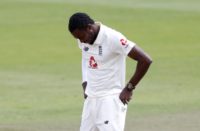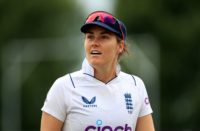For those used to watching Paul Collingwood the cricketer, the term loyal and trusted servant seemed a most apposite phrase. Not for him the lofty perch of high office.
And yet it is never wise to underestimate the honest
grafter, for Collingwood remains the only man to have captained England to a
global trophy, an achievement that could yet have a telling effect on this World Cup summer.
It is for these qualities as well as that accolade, the
World T20 title in 2010, that 42-year-old Collingwood remains favourite to take
over from Trevor Bayliss for one of the England lead coach roles, should the
job be split following the Australian’s retirement as head coach at the end of the season.
That appointment, which looks a shoo-in, is not exactly a
surprise. Collingwood, who retired from Durham last year, has never made any
secret of his desire to coach England. Indeed, he had been working with the
team during their recent tour to the Caribbean, his immediate brief being to
sharpen their fielding.
They say the best coaches are rarely the best players, the
latter group being naturally instinctive rather than deep thinkers, and
Collingwood has driven his talents rather than the other way around.
He has always been brutally honest about his shortcomings,
too, his one notable talent being the ability to squeeze the most from himself
through hard work and shrewd observations of how others got things done.
Let’s face it, you don’t notch the most ever ODIs by an
England player (197, though soon to be overtaken by Eoin Morgan, currently on
194) in such a fast-changing format without being savvy and adaptable. Although
he played 68 Tests, often with distinction given he averaged 40.56 and scored
10 hundreds, he offered most as a white-ball player.
Dynamic and athletic in the field; able to bowl seam up with
good variations of pace, swing and cut; and with the skill to bat anywhere from
three to seven, his was an all-round package lacking only in brutal power-hitting.
Even so, he still managed 98 sixes in T20 and 50-over internationals for
England.
When he first appeared on the England scene it wasn’t immediately apparent why he’d been
picked, his county form not being sparkling.
I remember speculating on the 2002/03 tour of Australia that
he’d made the 17-man squad because Duncan Fletcher, England’s coach, felt he
was a good bloke and you need them on long, hard Ashes tours.
After all, it was the third England tour he’d been picked
for and he’d yet to make his Test debut. Yet, he didn’t play in Australia,
either, a spare part role that saw some team-mates nickname him toenails, on
account that they were the only part of him visible every time he cosied up to
Fletcher.
That reputation as ‘teacher’s pet,’ although a tad unfair, is one often borne by moderate talents who, by dint of hard work, haul themselves to the summit of their sport.

Survival instincts vary and he has always been closer to the establishment than not, which is why his possible appointment now, with Ashley Giles as director of England cricket (Giles was both a team-mate and a similarly dimensioned talent to Collingwood), would seem a formality.
It would certainly make sense strategically. On the cusp of a home World Cup, one in which
England will be favourites, it will be useful to have someone on hand who
has actually won a global tournament after decades of failure. There are many
in sport rumoured to have the Midas touch but Collingwood has actually got the
booty to prove it.
If he gets the job now he will also be able to shadow
Bayliss throughout the Ashes series that follows. Although many will assume
that coaching/mentoring red and white-ball teams is more or less the same
thing, England’s recent results suggest otherwise with the white-ball side
swatting aside most opponents and the Test team faltering against teams the
rankings say they should beat easily.
Any experience of getting into England’s Test mindset
should, therefore, prove invaluable. A bit of Collingwood grit would not go
amiss in the Test team’s batting.
His 206 against Australia in 2006, which lasted eight and a
half hours and took 392 balls, the majority of them faced with Shane Warne
sledging him about the MBE he received in 2005 for scoring just 17 runs in Ashes
series, was a masterclass in yielding nothing to an opponent.
Despite that, England still contrived to lose the match
after declaring their first innings on 551-6. Collingwood, though, unbeaten in
the second innings collapse, was blameless.
He remains fit and lithe, something Fletcher, his old coach,
reckoned would become increasingly important when managing international teams.
With that and all those other boxes ticked his appointment would seem a
foregone conclusion to most of us, though not Collingwood.
He has learnt never to take anything for granted.
DEREK PRINGLE / Photo: Getty Images















